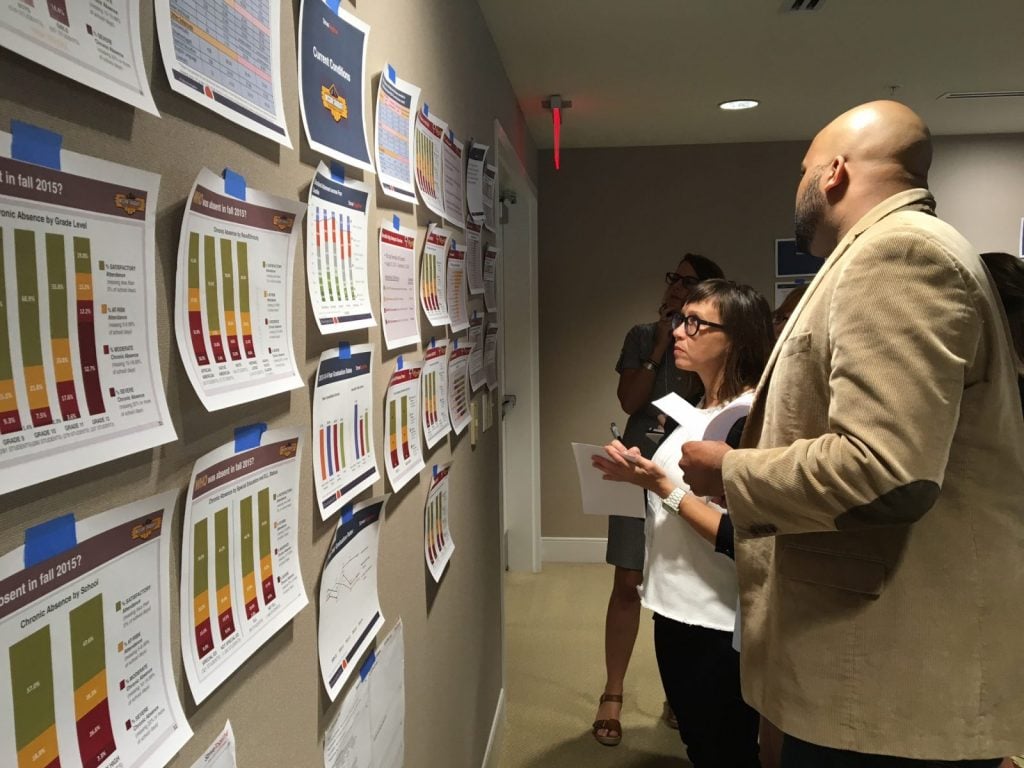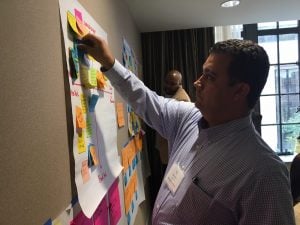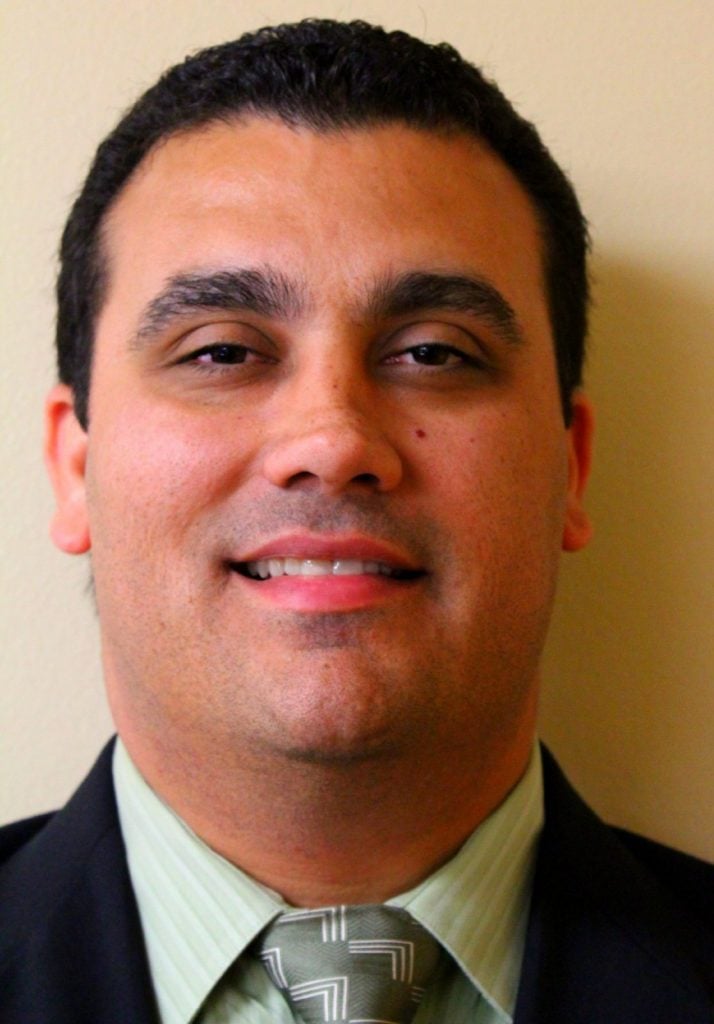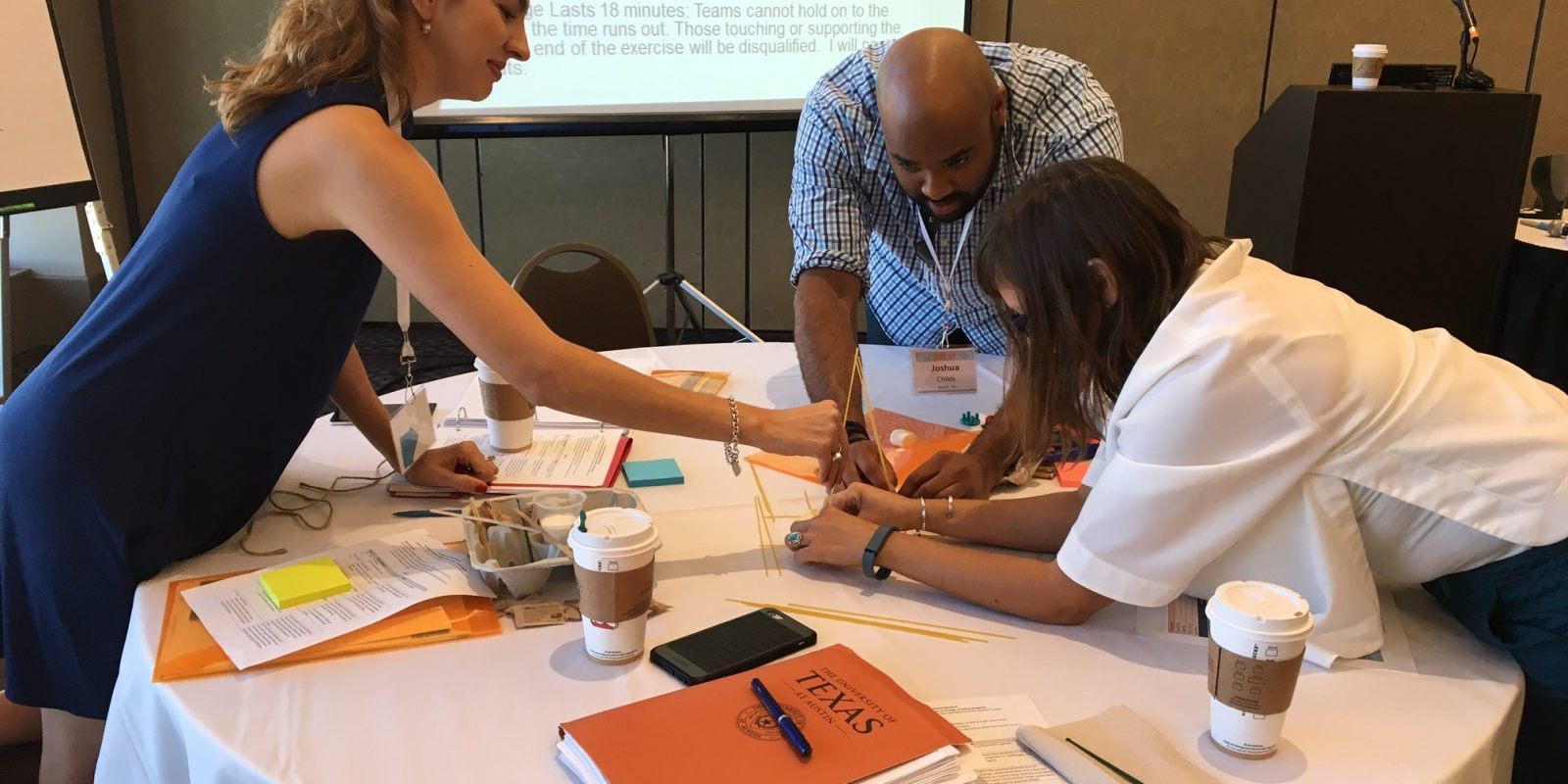Guest post by Joshua Childs of the University of Texas at Austin; Ty Davidson of Travis Early College High School; and Sonia Dominguez of E3 Alliance, a StriveTogether Cradle to Career Network community.
Communities across the country, from Pittsburgh to Oakland, are working every day to improve student attendance, but addressing complex educational issues often can be isolating and siloed.
In 2016, StriveTogether launched the K-12 Impact and Improvement Network, which focused on student attendance. Five cities — Waterbury, Albuquerque, Bexar County, Adams County and Austin — convened both virtually and in person to share resources, learn new tools and strategies, and collaborate on efforts to reduce chronic absenteeism in our respective communities.

Our work within the K-12 Impact and Improvement Network was driven by the fact that in Central Texas, about 10 percent of our PK-12 students were chronically absent during the 2015-16 school year. That amounts to more than 30,000 students. We also knew that in our region, pre-kindergarten students and high school students are more likely to be chronically absent. During the 2015-16 school year, 15 percent of ninth-graders and 23 percent of 12th-graders were chronically absent. This is alarming given that 40 percent of chronically absent ninth-graders do not graduate on time. Additionally, if you are a low-income student, you are twice as likely to be chronically absent.
Led by data from our region, our team assisted Austin Independent School District in implementing the Success Mentors Initiative at Travis Early Career High School. The Success Mentors Initiative aimed to reduce chronic absenteeism by connecting students at risk of becoming chronically absent with trained adults who are volunteer faculty or staff members, or business leaders or employees at partner organizations including University of Texas Project MALES. The program also has near peer mentors, who are typically high school seniors or college students.
We concentrated our efforts on supporting students who are on the bubble — meaning absent between 10 and 18 days the previous year. During the first year, our focus also was on ninth-graders, then expanded to incoming freshmen and 10th-graders the second year. This allows for 10th-graders to continue working with their mentors even if they are no longer considered chronically absent. Moving forward, the plan is to have former chronically absent students who were mentored serve as mentors for incoming freshmen.

Here are the four lessons we learned as a result of being a part of the K-12 Impact and Improvement Network:
- Small tests of change: Solving chronic absenteeism is complex. Being able to test new ideas and strategies in a Travis Early College High School was important to the Success Mentors Initiative’s overall success.
- Improvement tools: Each of the learning sessions, in person and virtual, provided new tools and knowledge that assisted in our chronic absenteeism reduction efforts. These improvement tools were vital to our team and to how we organized around addressing chronic absenteeism.
- Cross-sector collaboration: Our team brought in different levels of expertise, experiences and ideas. The principal was very engaged in the process (and also a member of the team), providing opportunities to adapt and try new strategies along the way since the decision-maker was at the table.
- Continuous improvement process: This process allowed our team to reflect, rethink and adapt.

We gained a lot of experience, knowledge and resources from being part of the K-12 Impact and Improvement Network. We achieved victories along with Austin Independent School District and Travis Early College High School as well. For example, after one year of the Success Mentors Initiative at Travis Early College High School, mentees were averaging a 5 percent increase in attendance. Pairing mentees with mentors within the district is one reason we successfully decreased chronic absenteeism at Travis Early College High School. These staff members volunteered to assist students who were considered chronically absent. They met with mentees three times a week to discuss attendance concerns and potential solutions.
Our work continues in Austin, Texas. After one year of being engaged in the K-12 Impact and Improvement Network, we are more committed now to decreasing chronic absenteeism throughout our region. We are looking forward to supporting ongoing efforts at Travis Early College High School. Finally, we each assist in expanding what we’ve gained from our StriveTogether work to other schools, districts and communities so that they also can tackle chronic absenteeism.

Joshua Childs

Ty Davidson

Sonia Dominguez
Joshua Childs is assistant professor of education policy at University of Texas at Austin.Ty Davidson is principal at Travis Early College High School. Sonia Dominguez is the student success director at E3 Alliance, a regional, data-driven education collaborative based in Austin, Texas, that partners with businesses and nonprofits, school districts, higher education institutions and policy leaders across Central Texas to drive systemic change in education. E3 Alliance believes that only through greater educational achievement for current and future generations of children, can Central Texas realize economic prosperity and a high quality of life for the community.





